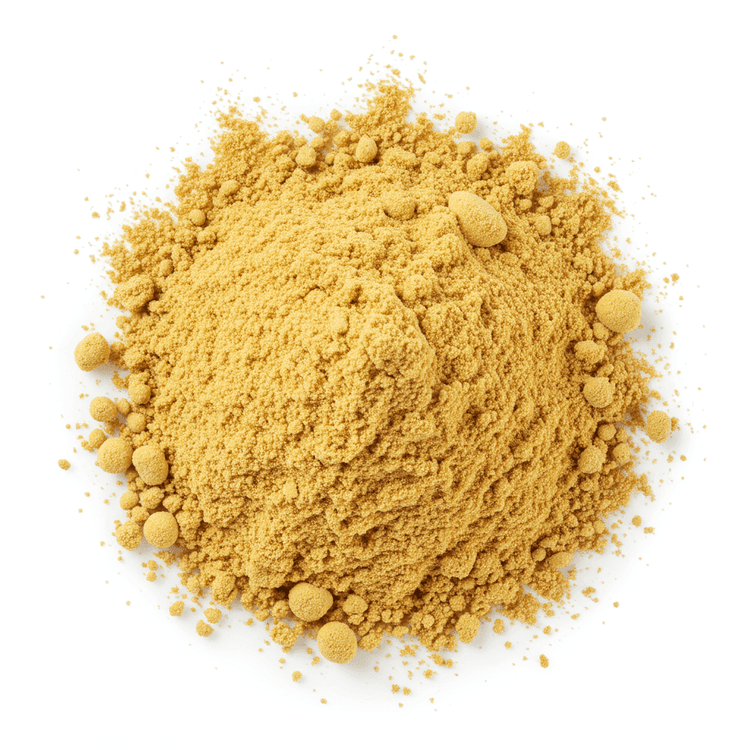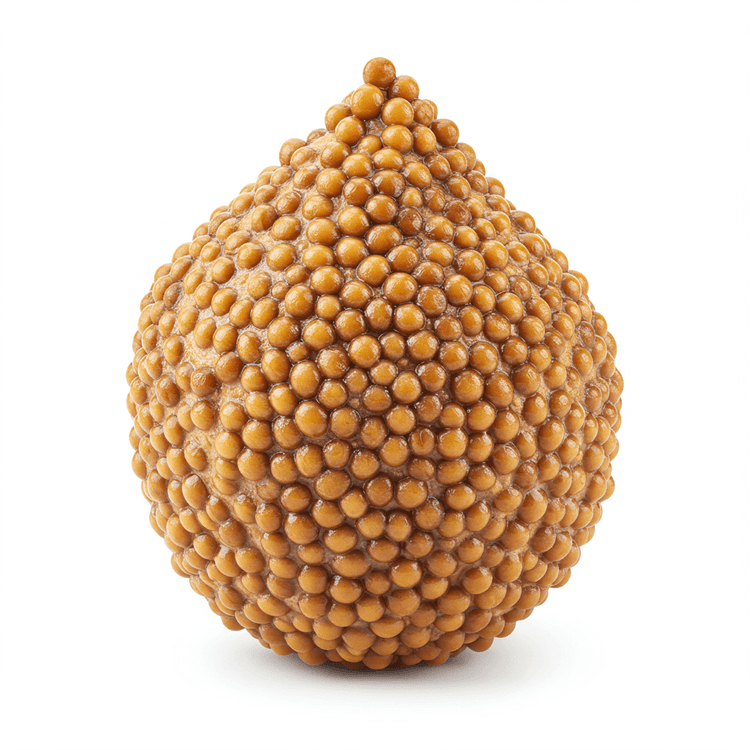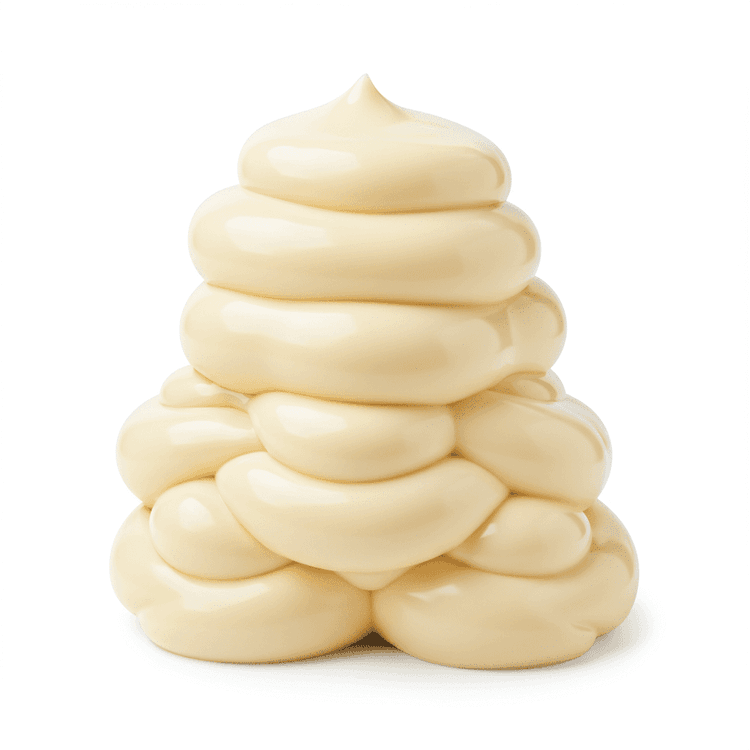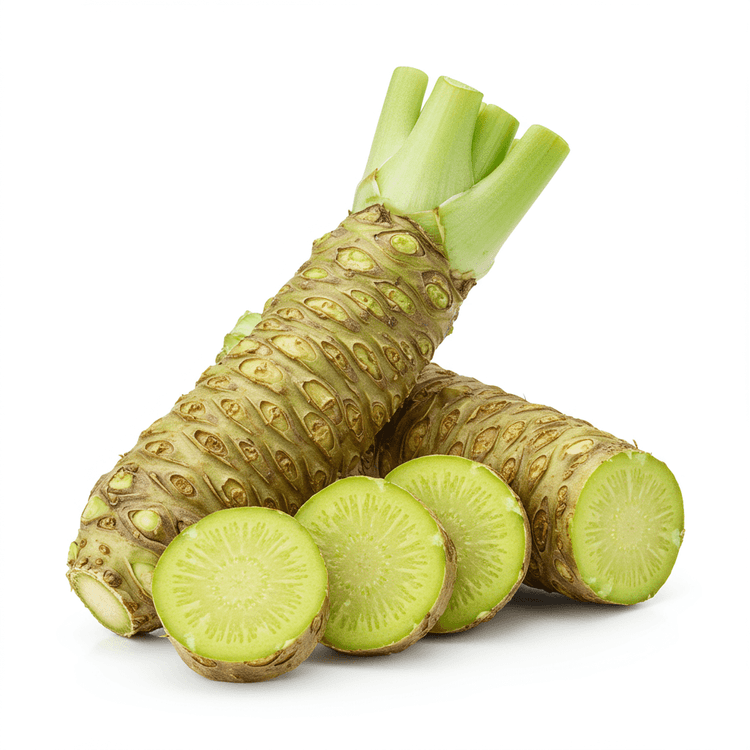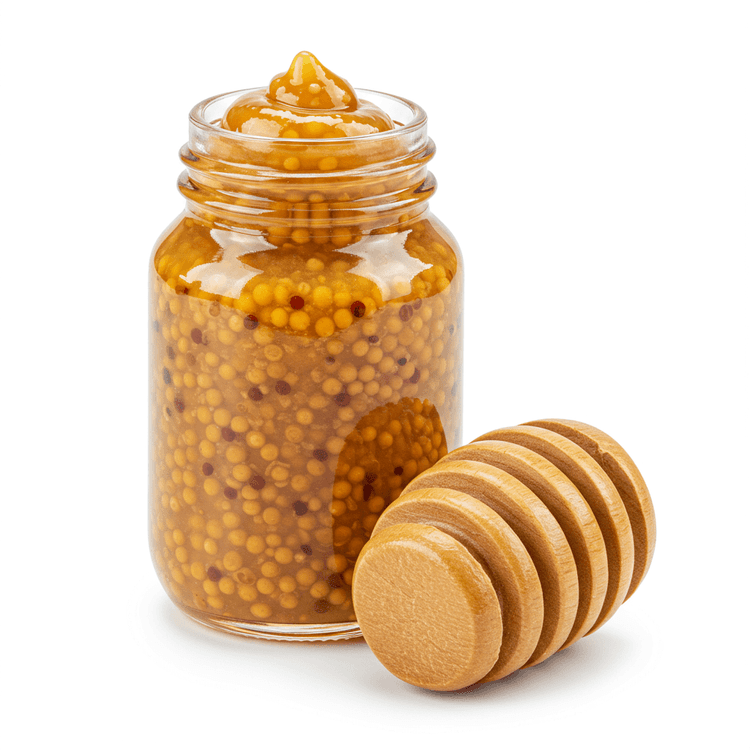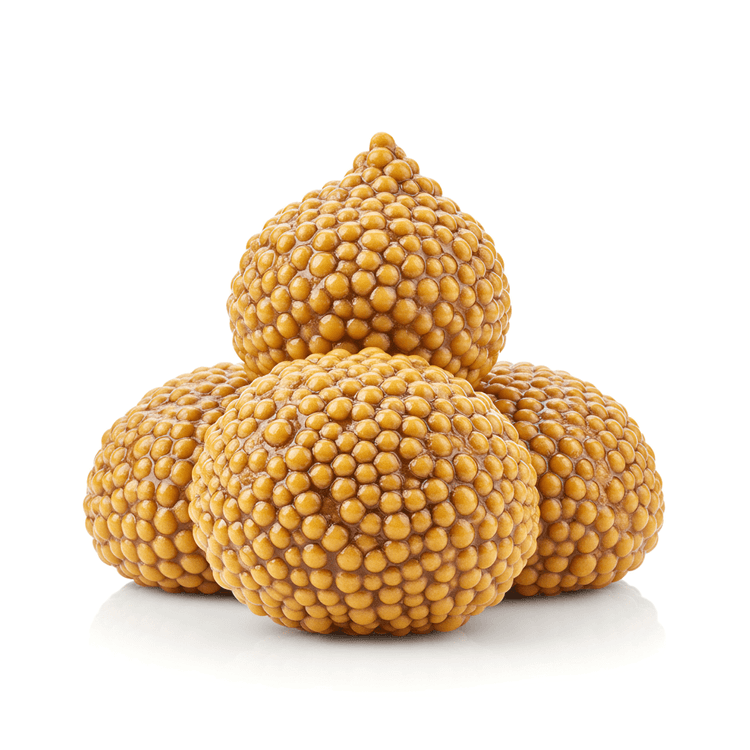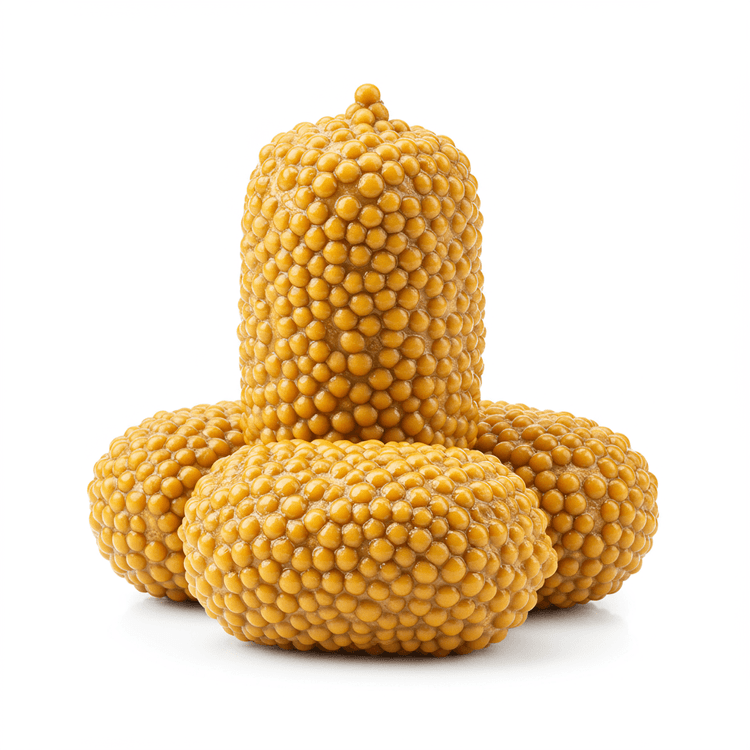
Mustard
Mustard is a versatile condiment and ingredient known for its pungent and often spicy flavor. Available in various forms, from seeds to ground powder to prepared pastes, mustard offers a range of tastes from mild and tangy to intensely hot. Mustard seeds themselves are small, round, and range in color from pale yellow to dark brown. When ground or prepared, mustard can be smooth or coarse in texture and ranges in color from bright yellow to deep brown. Explore the distinct flavors and textures of different mustards and add a flavorful kick to your culinary creations. Discover why mustard is a staple in kitchens around the world, appreciated for its ability to enhance everything from sandwiches and grilled meats to sauces and dressings. Whether you're seeking a classic yellow mustard or a gourmet Dijon, mustard provides a unique and satisfying taste experience.
Common Uses
- Making salad dressings and vinaigrettes: Mustard acts as an emulsifier, helping to bind oil and vinegar while adding a sharp, tangy flavor to homemade salad dressings and vinaigrettes. This creates a well-blended, flavorful dressing that clings beautifully to salads.
- Creating sauces and marinades: Mustard is a key ingredient in many sauces and marinades, providing acidity, spice, and depth of flavor. It complements meats, vegetables, and even tofu, tenderizing and enhancing their taste.
- Adding flavor to sandwiches and burgers: A classic condiment, mustard adds a zesty kick to sandwiches, burgers, and wraps. Its sharp taste cuts through richness and complements various fillings, providing a satisfying contrast.
- Enhancing grilled meats and sausages: Slathering mustard on grilled meats and sausages before or during cooking adds a flavorful crust and helps to retain moisture. The heat mellows the mustard's intensity, creating a delicious caramelized flavor.
- Pickling vegetables: Mustard seeds are often used in pickling brines to add a sharp, spicy note and enhance the preservation process. The seeds contribute both flavor and a subtle crunch to pickled vegetables.
- Thickening and flavoring soups and stews: A spoonful of mustard can thicken and add a tangy depth to soups and stews. It blends seamlessly into the broth, contributing a subtle but noticeable flavor enhancement and enriching the overall texture.
Nutrition (per serving)
Nutrition (per serving)
Calories
66.0kcal (3.3%)
Protein
3.6g (7.2%)
Carbs
3.9g (1.42%)
Sugars
1.8g (3.6%)
Healthy Fat
4.0g
Unhealthy Fat
0.3g
% Daily Value based on a 2000 calorie diet
Nutrition (per serving)
Calories
66.0kcal (3.3%)
Protein
3.6g (7.2%)
Carbs
3.9g (1.42%)
Sugars
1.8g (3.6%)
Healthy Fat
4.0g
Unhealthy Fat
0.3g
% Daily Value based on a 2000 calorie diet
Health Benefits
- May offer anti-inflammatory properties due to compounds like glucosinolates.
- Rich in selenium, which acts as an antioxidant and supports thyroid function.
- Good source of minerals like magnesium and calcium, essential for bone health.
- Mustard seeds may help lower blood sugar levels, potentially beneficial for diabetes management.
- Can stimulate digestion and improve gut health by promoting the production of digestive juices.
Substitutes
Chefadora AI is here.
Experience smarter, stress-free cooking.
Storage Tips
Mustard seeds should be stored in an airtight container in a cool, dark, and dry place like a pantry or cupboard. Properly stored, they can last for several years. Prepared mustard, once opened, should be refrigerated to maintain its flavor and prevent spoilage. It's best to use prepared mustard within 1-2 years for optimal taste.
Marnirni-apinthi Building, Lot Fourteen,
North Terrace, Adelaide, South Australia, 5000
Australia
